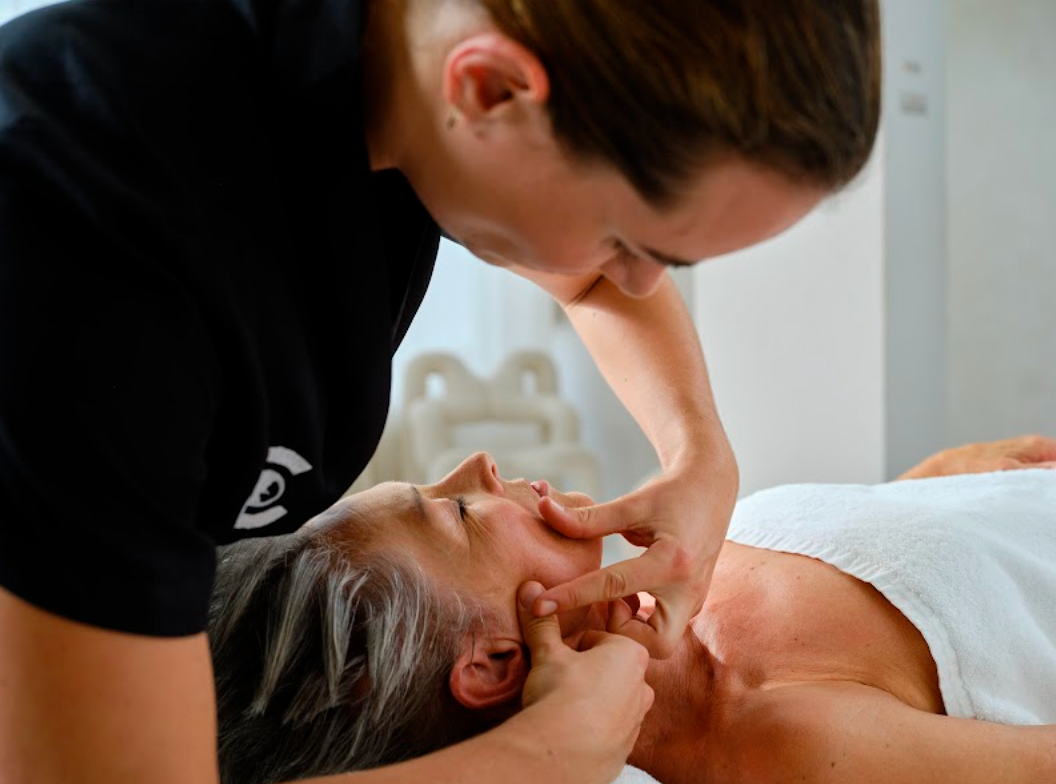Ever notice how your skin seems to rebel when you're stressed? That's because stress triggers a surge in cortisol, which boosts oil production. Too much oil can clog your pores and lead to breakouts, leaving you with unsightly pimples.
Stress can also take a toll on your hair. It often pushes your hair into a resting phase, leading to increased shedding, known as telogen effluvium. You might notice more hair falling out or thinning, and the stress itself can make the situation worse.
The good news is, you can avoid many of these issues by managing your stress levels and taking care of yourself. Practicing relaxation techniques, getting enough sleep, staying hydrated, and more.
We wrote down three simple yet powerful tips to help you calm your mind and relieve stress, promoting a healthier, more radiant you.
- Deep Breathing: The Power of Your Breath
Deep breathing is one of the simplest and most effective ways to reduce stress. When you’re stressed, your body enters "fight or flight" mode, releasing hormones like adrenaline and cortisol. While this response can be useful in emergencies, it’s not beneficial when triggered by everyday situations.
Deep breathing helps activate your body’s relaxation response, counteracting stress and bringing you back to a state of calm.
How to Practice Deep Breathing: Sit or lie down comfortably. Inhale deeply through your nose, letting your abdomen rise. Hold the breath for a count of four, then exhale slowly through your mouth. Repeat for 5-10 minutes.
- The Healing Power of Massage
Massage is another powerful tool for reducing stress. Physical tension often accompanies stress, leading to tight muscles, headaches, and even chronic pain. Massage therapy works by releasing this tension, helping you to relax both physically and mentally.
How to Incorporate Massages into Your Life: We recommend our 90' Relaxing Massage for that ultimate moment of relaxation. If professional massages aren’t feasible, consider self-massage techniques or using a foam roller to release muscle tension at home.
- The Healing Power of Dancing
Dancing is a fun and effective way to combat stress. Whether it’s a structured dance class or simply moving to your favourite music at home, dancing can help release stress and boost your mood.
How to Incorporate Dancing into Your Life: You don’t need to be a professional dancer to enjoy the stress-relief benefits of dancing. Put on your favourite music and dance around your living room, join a dance class, or participate in a local dance group. The key is to have fun and move in a way that feels good to you.
Don’t forget
Stress is an inevitable part of life, but it doesn’t have to control you. By incorporating deep breathing, massage, and dancing into your routine, you can significantly reduce stress and improve your overall well-being.
The next time stress starts to creep in, take a deep breath, book a massage, facial or dance it out. You’ll be surprised at how much better you feel.
